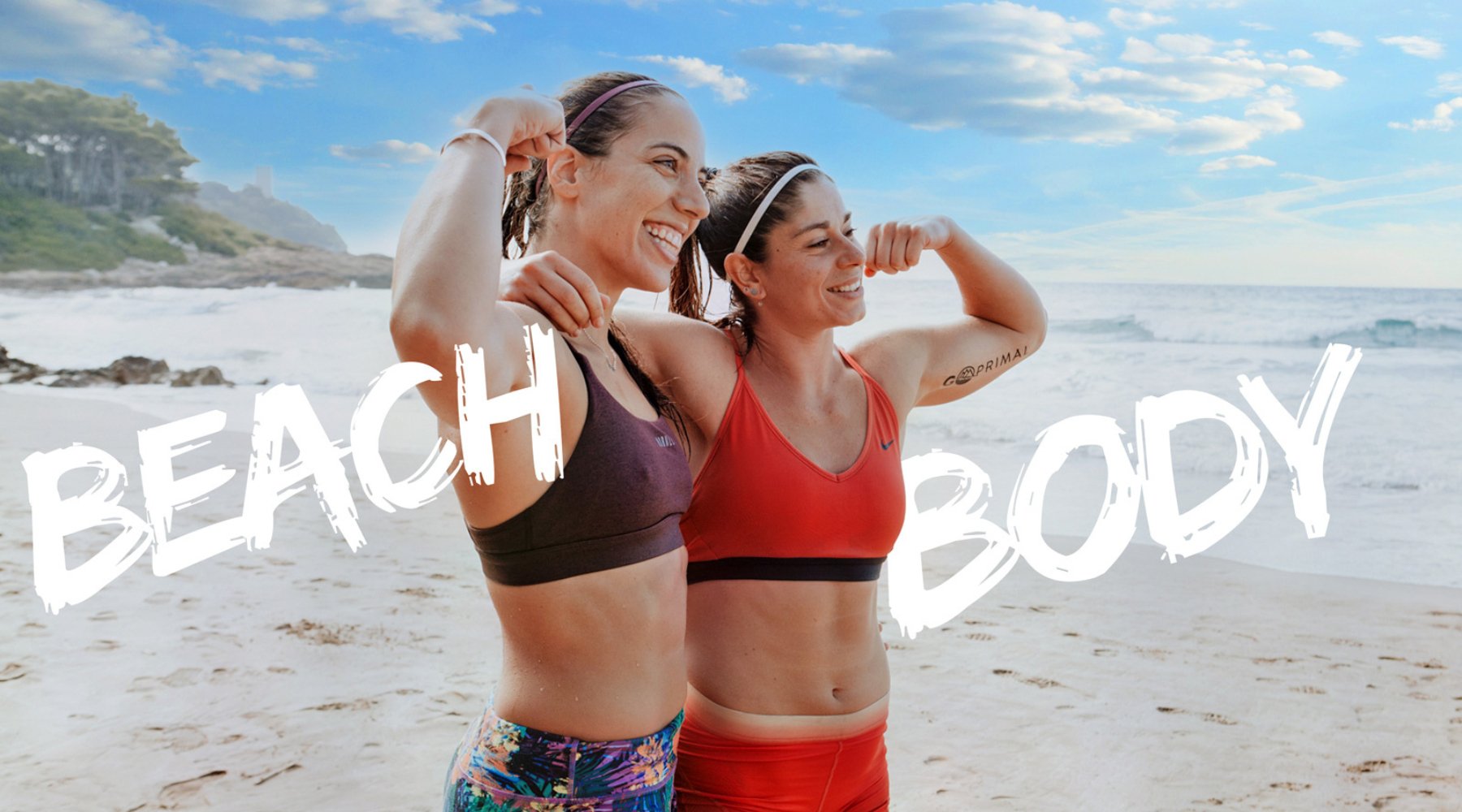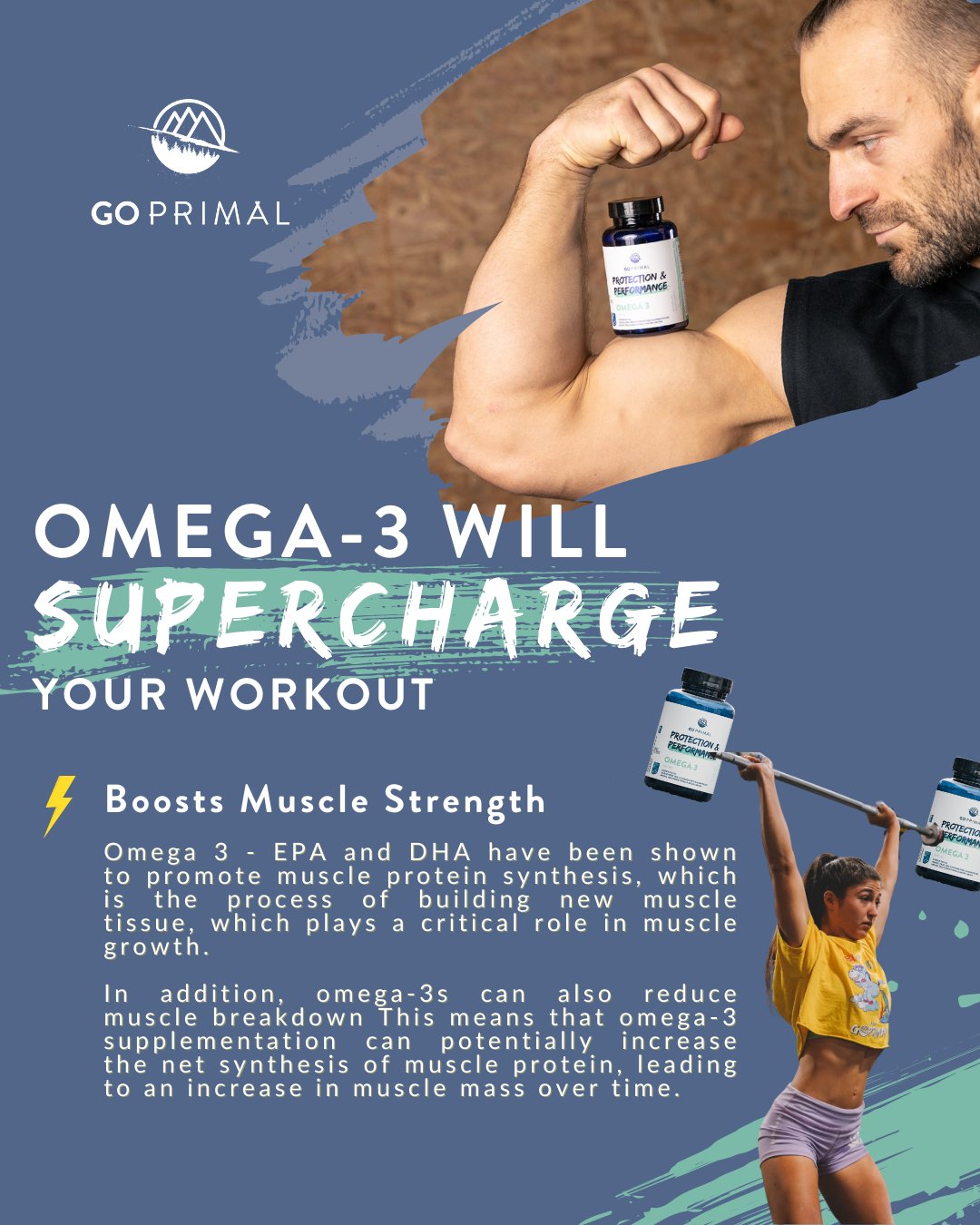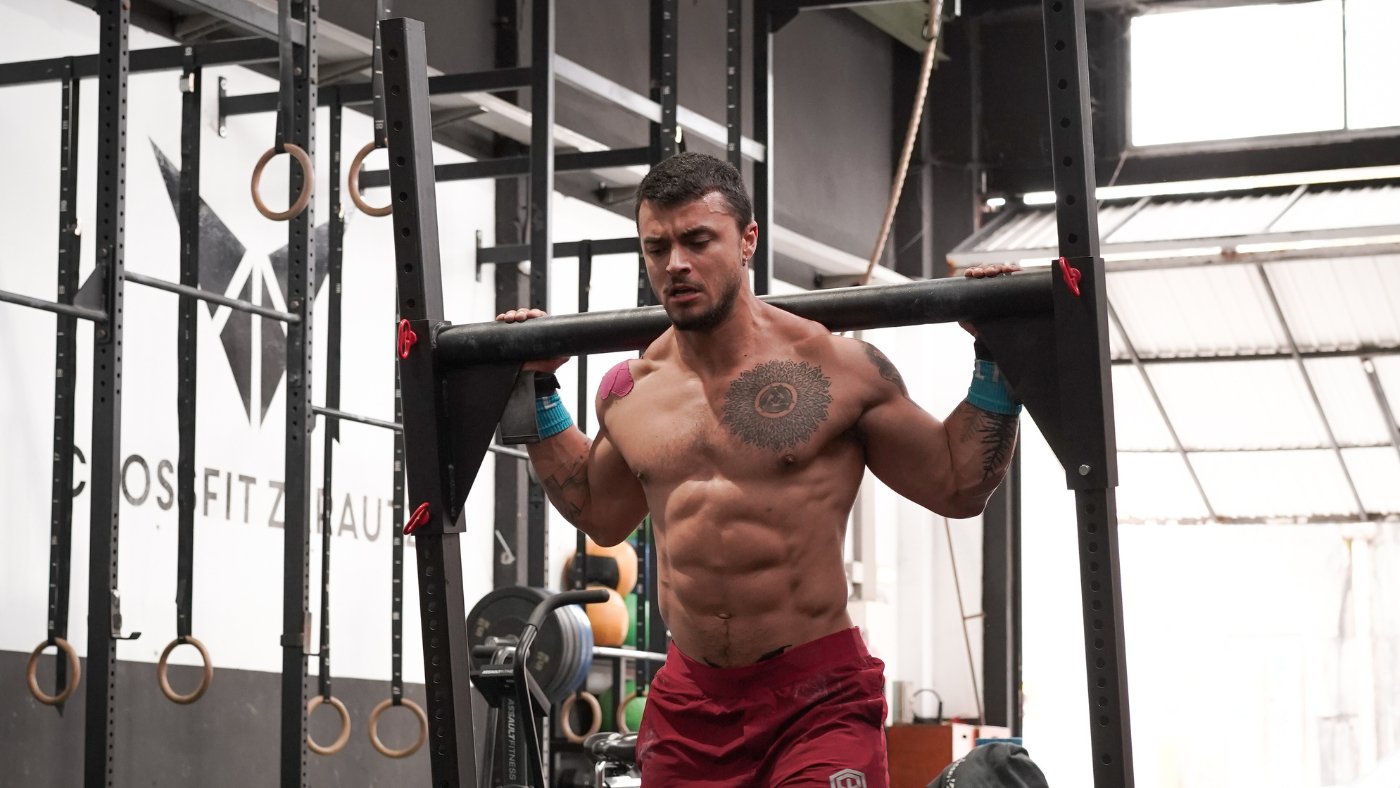
Protein power for your beach body: How to get fit just before summer!
Summer bodies are made in the winter - it's just a shame that winter is already over! What if you haven't been hitting the gym consistently all year and suddenly realize you're not quite in shape yet? Don't worry; it’s not too late! In this blog post, we explain how you can still achieve your shape just before summer. With a protein-rich diet and effective workouts, it's no problem!
Why enough protein is crucial to reach your beach body
One of the most important things you can do to prepare for summer is to eat a protein-rich diet. Proteins are building blocks of the body and help to build and maintain muscle. If you're trying to tone and sculpt your body, it's important that you eat enough protein. You should try to eat protein at every meal. We explain exactly why!
What is protein?
Protein (from the Greek "proton - the first, the most important) is protein and is very important to our bodies because it cannot be stored, so we need a constant supply. Protein provides the building blocks for our muscles, organs and blood. Without protein, there is no muscle building and no necessary regeneration, as we destroy muscle cells during every workout, and the body has to replace them.
Animal or vegetable protein?
Animal protein, i.e. meat, fish, eggs or dairy products, such as GoPrimal HydroWhey, is better absorbed by the body than vegetable protein because of its similarity to the human body. However, the difference is very small, so a combination of different plant proteins can also ensure a sufficient supply of protein for the body, for example, with a combination of pea protein and hemp protein as in our GoPrimal Plant Warrior.
How does the body process protein?
After ingestion, our body splits the protein into its individual building blocks, the amino acids. These are converted into the body's own protein and thus support muscle building. There are about 200 amino acids, 21 of which can form protein and body tissue - these are called "proteinogenic amino acids". After ingestion, our body splits the protein into its individual building blocks, the amino acids. These are converted into the body's own protein and thus support muscle building. There are about 200 amino acids, 21 of which are capable of forming protein and body tissue - these are called "proteinogenic amino acids". Some of these amino acids, such as alanine, arginine or leucine, are probably familiar to you and you have already seen them on the back of protein powder sachets.

What does protein have to do with weight loss?
Protein is an important part of the diet, especially for people who want to lose weight. Protein helps prevent muscle loss during weight loss because it is an important component of muscle tissue. Adequate protein intake helps to boost metabolism and control appetite. The higher metabolism means the body burns more calories, even at rest. Protein also has a high satiety value and can help you feel full and satisfied for longer, reducing the risk of reaching for snacks after a meal.
Support muscle mass:
Protein is an important component of muscle tissue, and adequate protein intake can help prevent muscle loss during weight loss. When people start to lose weight, they often tend to lose not only fat but also muscle mass. However, losing muscle mass can have undesirable effects: Less muscle also means lower calorie consumption and a slower metabolism. Therefore, it is important to eat enough protein while losing weight to maintain muscle mass.
Increase metabolism:
Protein stimulates the metabolism and thus increases calorie consumption. The digestion and absorption of protein require more energy than carbohydrates or fats. This means that the body burns more calories when it processes protein. This higher metabolism means that the body burns more calories even when you are resting or sleeping.
Satiety:
Protein has a high satiety value and can help you feel full and satisfied for longer - minimizing the risk of wanting to reach for snacks after a meal. Studies have shown that people who eat a high-protein diet consume fewer calories in total than people who eat a high-carbohydrate or high-fat diet.
Which protein-rich foods should I reach for?
Chicken and turkey:
Chicken and turkey are excellent sources of protein and are low in fat.
Fish:
Fish is another good source of protein that is also rich in omega-3 fatty acids. Omega-3 fatty acids are important for heart health and can also help reduce appetite.
Eggs:
Eggs are rich in protein and also contain many important nutrients such as vitamin D and choline.
Dairy products:
Dairy products such as yogurt, quark (aka curd), and cheese are high in protein and can also help reduce appetite, but watch the fat content and go for light products.
Legumes:
Pulses such as beans, lentils and chickpeas are an excellent source of vegetable protein and also contain fiber, which can help keep you fuller for longer.
Protein powders:
It's not that easy to get to the total amount of protein you need each day, and right after a workout, most of us don't feel like eating yet. A protein shake like our GoPrimal HydroWhey is a great alternative, providing 25.5 grams of protein in just one serving, with only 118 calories, and is satiating due to the volume of liquid!
Check out also this blogpost: Muscle Recovery: Do you need protein after a workout?
Move it! Unfortunately, nutrition alone is not enough
In addition to a protein-rich diet, you should also exercise regularly. A combination of strength training and cardio can help you burn fat and build muscle. A good workout might include a warm-up on the treadmill followed by a combination of squats, lunges and push-ups. These exercises target different muscle groups and help you tone and sculpt your body.
Beach body while sleeping?
Unfortunately, it's not that easy, but in addition to a protein-rich diet and strength and cardio training, you should also make sure that you have enough time for regeneration and recovery. Your body needs time to recover and build muscle. If you train hard every day, you are more likely to injure yourself or develop overtraining symptoms. So include plenty of rest in your training program.
In summary, it's not too late to get ready for summer. With a protein-rich diet, regular training and sufficient rest, you can achieve your desired shape in a short time. So get started now and order your protein powder to cover your daily protein needs!
Sources:
Schoenfeld, B. J., Aragon, A. A., & Krieger, J. W. (2013). The effect of protein timing on muscle strength and hypertrophy: a meta-analysis. Journal of the International Society of Sports Nutrition, 10(1), 53. doi: 10.1186/1550-2783-10-53
Phillips, S. M. (2014). A brief review of higher dietary protein diets in weight loss: A focus on athletes. Sports Medicine, 44(2), 149-153. doi: 10.1007/s40279-014-0254-y
Rodriguez, N. R., DiMarco, N. M., & Langley, S. (2009). American College of Sports Medicine position stand. Nutrition and athletic performance. Medicine & Science in Sports & Exercise, 41(3), 709-731. doi: 10.1249/MSS.0b013e31890eb86
Aragon, A. A., & Schoenfeld, B. J. (2013). Nutrient timing revisited: is there a post-exercise anabolic window?. Journal of the International Society of Sports Nutrition, 10(1), 5. doi: 10.1186/1550-2783-10-5
Campbell, B., Kreider, R. B., Ziegenfuss, T., La Bounty, P., Roberts, M., Burke, D., … Antonio, J. (2007). International Society of Sports Nutrition position stand: protein and exercise. Journal of the International Society of Sports Nutrition, 4(1), 8. doi: 10.1186/1550-2783-4-8



